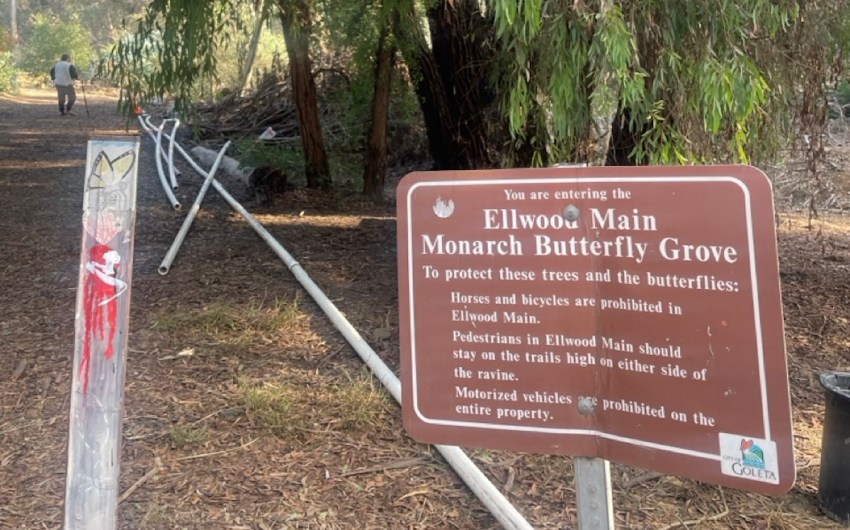I grew up in a dynamic and vibrant family formed by my parents’ unique bond as physicians and business leaders. Despite their political differences, my mother is a proud Democrat and my father is a staunch Republican, they found common ground in their shared passion for healing and entrepreneurship. Our dinner table was often the scene of lively discussions, with discussions of government policy over mashed potatoes. The conversations were never boring, and although sparks often flew, they always ended in laughter, reminding us that love transcends even the most passionate differences.

If we look to the present, what we are seeing in this political climate is far less forgiving. The stakes are higher, the chasms run deeper, and laughs at the table seem harder to come by. As a psychotherapist and someone who continues to navigate the complexities of politically diverse family systems, I have seen how polarization can strain relationships. But we also know that this doesn’t have to be the case. With some intention and effort, families can come together despite their differences.
Here’s how to not let politics ruin your vacation.
Set boundaries before meals
One of the most effective ways to prevent political tension is to set boundaries before anyone comes to the table. Setting boundaries doesn’t have to be a formal announcement, but instead a casual message like a group text. An example text is: “Looking forward to the holidays!” Focus on food, gratitude, and each other. This year we won’t be talking about politics. ” This is an easy way to set the tone and help everyone shift their focus.
If you’re the host, consider leading by example by steering the conversation in a neutral and inclusive direction. While you may be tempted to take a sly political jab (especially when Uncle Joe appears wearing your favorite campaign hat), resist the urge. Remember: Boundaries are not meant to control others. It’s about creating an environment where everyone feels safe and respected.
practice empathy
Empathy can feel like a tall order when someone’s opinions conflict with your own, but it’s also a powerful tool for diffusing tension. Rather than focusing on the disagreement, try to understand the emotions and values that drive the other person’s point of view. Perhaps their opinion on an issue stems from fear, frustration, or a desire to protect their community.
Empathy doesn’t mean you have to agree. It means you are willing to listen and understand the humanity behind their beliefs. This approach can turn heated exchanges into meaningful conversations. It also helps you end the conversation gracefully if it’s not productive. And if finding empathy feels impossible, ask yourself why you’re doing this in the first place and how you can best serve your needs. Sometimes the most compassionate act is to step back to care for ourselves.
use humor (wisely)
Humor was what brought the family together when arguments got heated. The right joke can break the ice, change the direction of the conversation, or simply remind us that we’re all human. For example, if someone tries to bring up a controversial topic, you might respond: Because I’m Team Pecan through and through. ” However, humor is most effective when it is light-hearted and inclusive, rather than sarcastic or harsh. The goal is to defuse the mood, not to escalate or minimize the situation.
focus on shared values

One of the biggest traps families fall into is focusing on their differences instead of their commonalities. Although you may disagree on politics, you likely share many of the same values, such as a love of family, concern for the future, and a desire for connection. Redirect the conversation to these shared values whenever possible. For example, instead of discussing policy, talk about your broader hopes for your community and the world. When someone shares a story about a political issue they care about, try to connect with their underlying feelings and concerns, even if you disagree on the details.
know when to leave
Despite your best efforts, sometimes conversations go bad. At times like these, it’s okay to walk away, literally or figuratively. Buy drinks, help in the kitchen, and watch the kids. Taking a physical break gives you time to regroup and prevents the situation from escalating.
If you can’t distance yourself, redirect the conversation with a neutral phrase like, “I understand what you’re saying, but I’d like to ask you about (insert safe topic)!” Please try it. It’s not about avoiding difficult topics forever, it’s about recognizing that holiday meals aren’t the right time for them.
don’t forget the big picture
After all, the holidays are all about connection. Now is the time to celebrate what unites us, not what divides us. When the conversation veers off topic, take a moment to reflect on what’s really important: the people around the table. When I think back to the lively discussions around the dinner table of my childhood, I don’t remember who “won” or exactly what points were made. What I remember is the laughter, the love, and the unwavering sense that family came first.
In these polarized times, the distance between us can often feel insurmountable. But with a little empathy, humor, and intentionality, families can find their way back to each other. The holidays are an opportunity to do just that, proving that connection is always possible even in the most divided times.
So this year, try focusing on the feast rather than the rub. Eat some gravy, have a laugh, and leave politics behind, at least until dessert.





